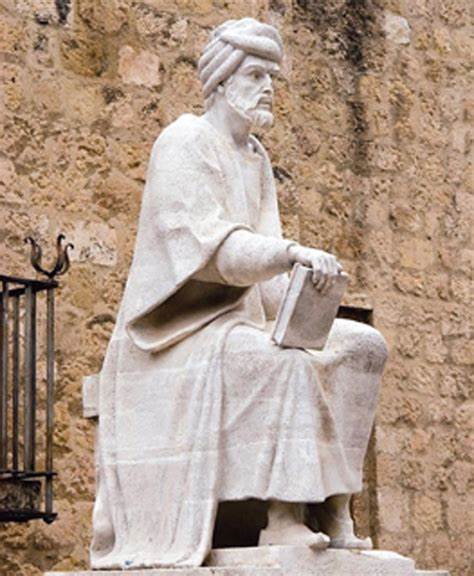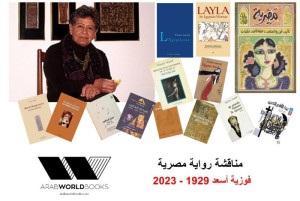Averroes (1126-1198)
Ibn Rushd (Averroes) is regarded by many as the foremost Islamic philosopher.
Abu'l-Walid Ibn Rushd, better known as Averroes (1126-1198), stands out as a towering figure in the history of Arab-Islamic thought, as well as that of West-European philosophy and theology. In the Islamic world, he played a decisive role in the defense of Greek philosophy against the onslaughts of the Ash'arite theologians (Mutakallimun), led by al-Ghazali (d. 1111), and the rehabilitation of Aristotle.
A common theme throughout his writings is that there is no incompatibility between religion and philosophy when both are properly understood. His contributions to philosophy took many forms, ranging from his detailed commentaries on Aristotle, his defense of philosophy against the attacks of those who condemned it as contrary to Islam and his construction of a form of Aristotelianism which cleansed it, as far as was possible at the time, of Neoplatonic influences.
In the Western world, he was recognized, as early as the thirteenth century, as the Commentator of Aristotle, contributing thereby to the rediscovery of the Master, after centuries of near-total oblivion in Western Europe. That discovery was instrumental in launching Latin Scholasticism and, in due course, the European Renaissance of the fifteenth century. Notwithstanding, there has been very little attention to Averroes' work in English, although greater interest has been shown in French, since the publication of Ernest Renan's Averroes et l'averroisme in 1852.
Abu al-Walid ibn Ahmad ibn Rushd, know in Europe as Averroes, was born in Córdova, the capital of Muslim Spain, where he spent the most of his life. He was a scion of a long line of religious judges and statesmen in Andalusia. Following the traditions of his family, Averroes was educated in Islamic law, but also in Hellenistic sciences in their Arab form. Later he served as the religious judge (qadi) of Seville (1169-1172), and chief judge of Córdova (1172-1182). The turning point in Averroes' career came in 1169. His friend Ibn Tufayl, a physician and the author of the philosophical allegory Hayy Ibn Yaqzan, introduced him to the calip Abu Ya'qub Yusuf, who was genuinely interested in philosophy.
In 1182 Averroes succeeded Ibn Tufayl as royal physician to caliph at the court of Marrakesh. The caliph died a few years later. When his son Abu Yusuf Ya'qub, nicknamed al-Mansur, succeeded his father, Averroes continued to enjoy the royal patronage until 1195 when he was tried as a heretic by the religious community of Córdova. According to some sources, Averroes had referred al-Mansur in the Book of Animals as the "king of the Berbers" (al-barbar), which could be read as Barbarians. Averroes was banished in disgrace and many of his works were burned. After a period of exile, he was restored to grace and the edicts against him were rescinded. Averroes died in 1198 in Marrakesh, Morocco. Even during his lifetime Averroes' philosophy was considered controversial, but he had a great impact on Western-European thought. Also his compendium of medicine, al-Kulliyat (in Latin, Colliget) was used for centuries. In Islamic lands, where orthodoxy and al-Ghazali's intuitive and mystical sense of the Divine won, Averroes' rationalism did not have following.
During the Middle Ages, Islamic scholars preserved ancient Greco-Roman learning. At the same time Western scholars had almost completely forgotten Aristotle and the great cultural legacy of the Greeks. In Islamic Spain there were numerous important libraries, and Christian scholars travelled south to make use of these resources. Greek texts had been translated into Arabic already after the Arab armies marched into Syria and Iraq. Severus Sebokht, who died in 667, wrote commentaries on the Rhetorica of Aristotle in the Monophysite monastery of Qinnesrin in northern Syria. Also Athanasius of Balad (d. 696) and George, Bishop of the Arabs (d. 724) produced commentaries and translations. Alexandria, the most important center for the study of Greek philosophy in the seventh century, fell in 641. Spain was invaded and overwhelmed by Muslim army in 710-712. With its palaces, mosques and libraries, Córdova became the most brilliant city in Europe.
After Greek and Arabic texts began to be translated in great numbers, the writings of the great Arabic philosophers, mostly importantly Avicenna (Ibn Sina, 980-1037) and Averroes, became available. They also offered quite unfamiliar ideas. When Averroes' works started to spread after 1230, they were received with much enthusiasm and curiosity. Pope Gregory IX ordered a commission to examine what measures could be taken to permit Christians to study books that were not allowed to be taught. However, in the 1270s Siger of Brabant, Boethius of Dacia, and Bernier of Nivelles were condemned for Averroistic heresies at Paris. Dante was accused of Averroism shortly after he died and his book, De Monarchia, was burned by the order of Pope John XXII.
From the thirteenth to mid-seventeenth centuries scholars regularly read Aristotle with Averroes' commentaries. In Raphael's celebrated fresco The School of Athens (1510-11) in the Stanza della Segnatura in the Vatican, the figure of Averroes is found standing behind Pythagoras and looking over his shoulder. And much later, Averroes' life inspired the Egyptian film director Youssef Chahine's film Destiny (1997), which warned of the dangers of fundamentalism. The Argentinian writer Jorge Luis Borges portaryed the scholar in 'Averroës' Search' (The Aleph, 1949) at work in his library, trying solve the enigma of the words "tragedy" and "comedy". Eventually he writes that tragedy means "panegyric," and that comedy means "satire." Too loyal to Islam, he cannot break circle of his own culture. One of Borges's sources was the French critic and historian Ernest Rénan (1823-1892), who argued in his study Averroès et l'averroïsme (1852) that Averroes' paraphrase of the Poetics of Aristotle evinces ignorance of Greek Literature. "Averroës's blunders in matters of Greek literature cannot but make one smile. He imagines that tragedy is nothing more than the art of encomium, comedy the art of censure; he then claims to find tragedies and comedies in the Arabic panegyrics and satires, and even in the Koran!" Borges's story is a postmodern fiction-about-fiction. At the end Averroes vanishes, to give room to the voice of the author, who explains that he tried to narrate the process of failure, but on the last page he felt that "Averroës, trying to imagine what a play is without ever having suspected what a theater is, was no more absurd than I, trying to imagine Averröes yet with no more material than a few snatches from Renan, Lane, and Asín Palacios."
Averroes' works include medical and astronomical writings, commentaries, and judicial and conceptual defenses of philosophy. As a physician he argued that the most important aspects of preserving health are a good digestion and a sound bowel-movement. Fruits and herbs should be avoided. Averroes became an authority among both Jews and Christians, and his commentaries on Aristotle influenced such theologians as Rabbi Moses ibn Maimon (1135-1204), St. Thomas Aquinas, and Albert the Great. Averroes opposed the Ash'arite theologians, led by the great Muslim thinker Abu Hamid al-Ghazali (1058-1111), whose onslaught on Greek-Arabic philosophy is said to have signaled the death of philosophy in the East. Al-Ghazali believed that it is impossible to proof the existence of Go rationally. As an answer to al-Ghazali's Tahafut al-Falasifah (Incoherence of the Philosophers) Averroes wrote Tahafut al-Tahafur (Incoherence of the Incoherence). He also criticized in it Ibn Sina's Neoplatonic metaphysics. In Exposition of the Method of Proof Averroes dealt with the question of God's existence and proposed his own proofs. The treatise was not translated into Latin but St. Thomas Aquinas' (1225-1274) famous approach to the question in The Summa Theologica rely upon Aristotle in similar way.
Averroes thought that "every prophet is a philosopher, but not every philosopher is a prophet." Not everybody was capable of interpreting Qur'anic texts - only the adept or "people of demonstration" are able to undertake the interpretation of ambiguous passages in the Qur'an. But there are certain doctrines about God, which must be accepted in toto, such as the existence of God as Creator and Sustainer of the world, the creation of the world by God, the validity of prophecy, and the resurrection of the body on the Last Day. He did not see any real conflict between philosophy and religion, or philosophical texts (Aristotle) and religious texts (Qur'an), "philosophy has always existed among the adepts of revelation, i.e. the prophets, peace be on them." Truth may be discovered by philosophers through logic, but it may also be reveled figuratively, as it is in scriptures. "All that is wanted in an enquiry into philosophical reasoning has already been perfectly examined by the Ancients. All that is required of us is that we should go back to their books and see what they have said in this connection. If all that they say be true, we should accept it and if there be something wrong, we should be warned by it. " (from On the Harmony of Religions and Philosophy, in Arabic Kitab fasl al-maqal, see: Medieval Sourcebook )
Averroes' attempt to harmonize religion and philosophy led to accusations of accepting the doctrine of "double truth," that a thing can be true in philosophy or according to reason while its opposite is true in theology or according to faith. He also believed that the intellect is universal and immortal. The relationship between the Active Intellect and the material intellect is what form is to matter; the Active Intellect is a "power of in the soul" and common to all mankind and eternal. According to Averroes, all generable and corruptible entities are made up of matter and form; soul is the the form or first perfection of a natural body. For these thoughts he was condemned for not believing in the immortality of the individual soul. In popular myth he was regarded as an atheist refuted by St. Thomas Aquinas.




